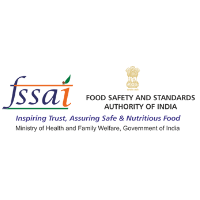What is FSSAI License?
FSSAI License stands for Food Safety and Standards Authority of India license. It is a mandatory requirement for food businesses in India to ensure food safety and hygiene standards are met. The FSSAI license is issued by the Food Safety and Standards Authority of India (FSSAI), a regulatory body established under the Food Safety and Standards Act, 2006.
This license certifies that the food business operator complies with the regulations and guidelines laid down by FSSAI regarding food safety, hygiene, and quality. Businesses involved in food manufacturing, processing, packaging, storage, distribution, and sale need to obtain the FSSAI license to operate legally in India.
Check out the Video of FSSAI Food License
What are the Benefits of FSSAI Food License?
Legal Compliance
Obtaining an FSSAI license ensures that your food business complies with the legal requirements set forth by the Food Safety and Standards Authority of India. It helps avoid penalties, fines, or legal action due to non-compliance.
Consumer Trust
Displaying the FSSAI license instills confidence and trust among consumers. It assures them that the food products they purchase meet safety and quality standards, thus enhancing your brand reputation.
Market Expansion
With an FSSAI license, you can expand your business operations to new markets, including retail chains, supermarkets, and online platforms. Many retailers and distributors require FSSAI-compliant products, giving you access to a wider customer base.
Competitive Advantage
Having an FSSAI license sets you apart from competitors who may not have obtained the necessary regulatory approvals. It demonstrates your commitment to food safety and quality, giving you a competitive edge in the market.
Business Credibility
The FSSAI license serves as a mark of credibility for your food business. It assures stakeholders, including suppliers, partners, and investors, of your adherence to food safety standards, fostering trust and long-term relationships.
Access to Government Schemes
Some government schemes and initiatives require food businesses to have a valid FSSAI license to qualify for benefits such as subsidies, grants, or support programs.
Who can apply for an FSSAI Food License?
Food Manufactures
Companies or individuals engaged in the production or manufacturing of food items such as packaged foods, beverages, dairy products, confectionery, etc.
Food Processors
Entities involved in processing, preserving, or packaging food products, including canning, freezing, drying, or bottling operations.
Food Distributors and Wholesalers
Businesses engaged in the distribution, wholesale, or supply of food products to retailers, restaurants, hotels, or other establishments.
Food Retailers
Retail outlets, supermarkets, grocery stores, convenience stores, and online platforms selling food products directly to consumers.
Food Importers and Exporters
Companies involved in the import or export of food items, including traders, exporters, and importers of food products.
Caterers and Food Service Providers
Catering services, canteens, restaurants, hotels, cafes, and other food service establishments serving prepared or cooked food to consumers.
Food Transporters and Warehouses
Businesses engaged in the transportation, logistics, or storage of food products, including transporters, logistics companies, and warehouses handling food items.
Food Packaging and Labeling Units
Entities involved in the packaging, labeling, or repackaging of food products, ensuring compliance with packaging and labeling regulations.
Document Required for FSSAI Food License :
Why Choose Us?
Expertise
Benefit from our experience in FSSAI license acquisition and renewal.
Efficiency
Save time and resources with our streamlined process.
Support
Our dedicated team is here to address any queries or concerns you may have.
Role of Shamkris and Process of FSSAI License
Shamkris adopts a results-oriented approach to compliance with mandatory licence requirements in the organization. A simple and guidance methodology help organisation to achieve licence in a timely manner and cost-effective. Shamkris support 100% in advisory, Guidance, Compliance with respect to license requirements to obtain approval.
The License process described below:
- Advisory for the document required
- Preparation of documents as per application & list of documents.
- Application File
- Inspection by the department if required
- Liason department
- License issued
- Yearly Compliance if Applicable
- Renewal when due

